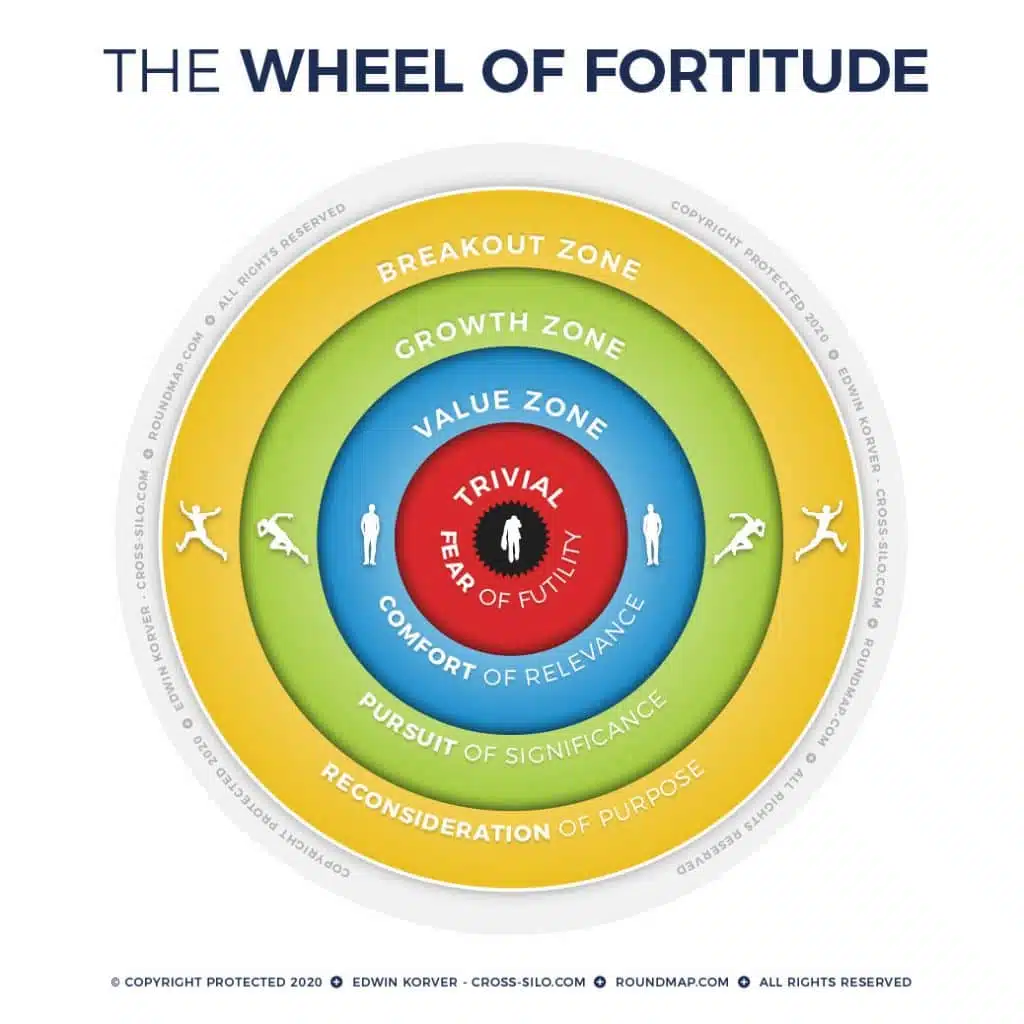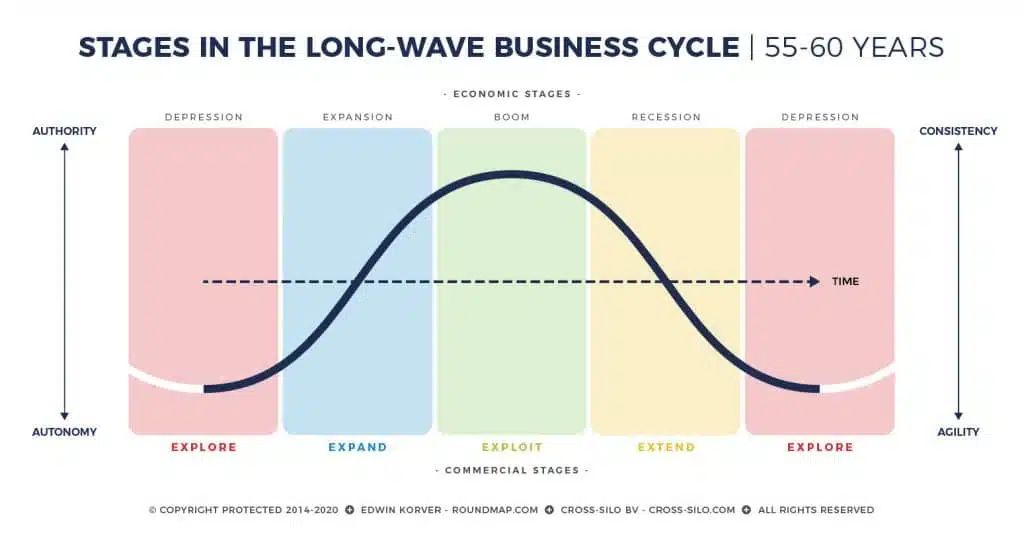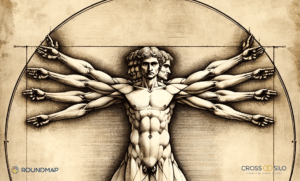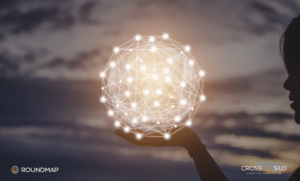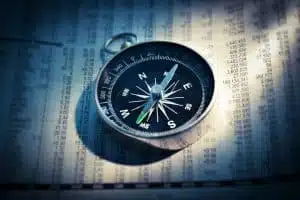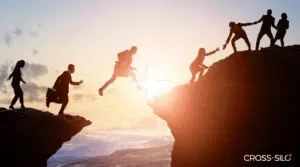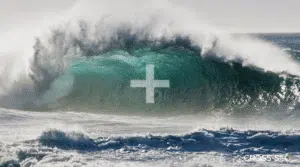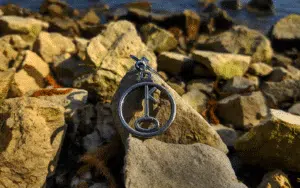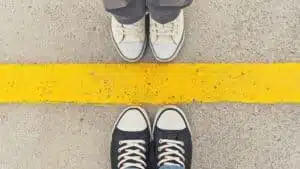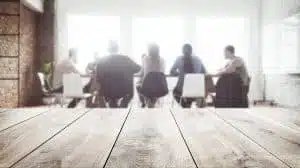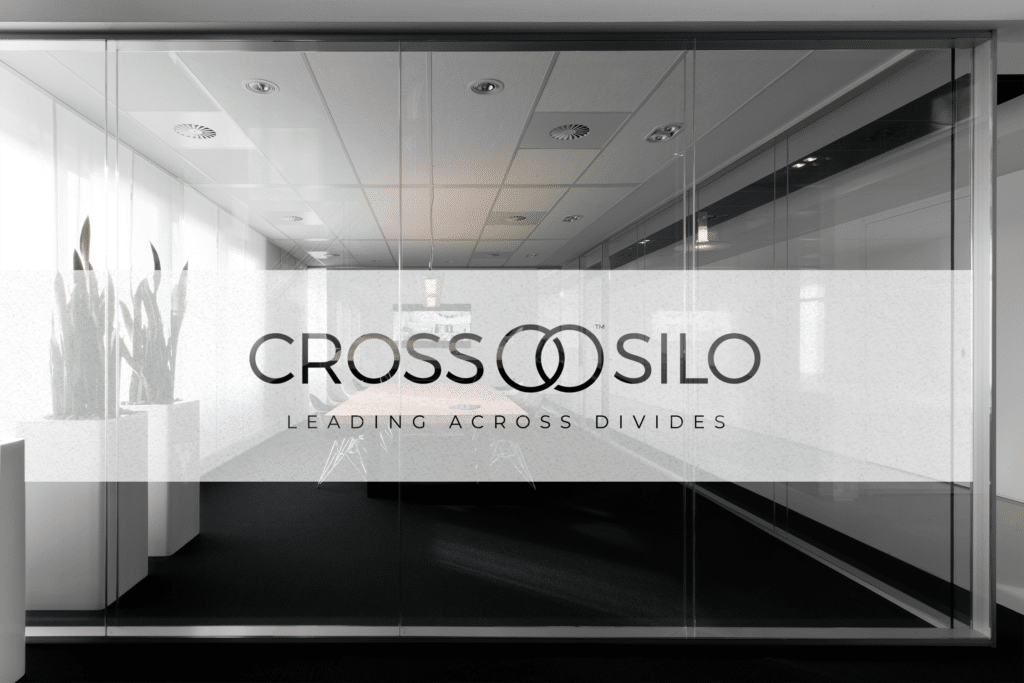Most readers will be familiar with the concept of ‘being in a comfort zone while growth requires one to dare to go beyond our comfort zone by facing our panic and fears. Bardwick defines a comfort zone as “a behavioral state where a person operates in an anxiety-neutral position.” Brené Brown describes it as “Where our uncertainty, scarcity, and vulnerability are minimized—where we believe we’ll have access to enough love, food, talent, time, admiration. Where we feel we have some control.”
However, we don’t believe that fear exists outside our comfort zone: it’s triggered by our limbic system. Fear lives in our core; it drives us to go to school, get a job, or make it in time for an appointment.
The Comfort Zone
Let’s have a look a two known diagrams, both representing the idea of a Comfort Zone:
At first, both diagrams seem to provide a plausible explanation of why some dare and others dare not to leave their zone of comfort. According to these diagrams, to grow, we must be willing to go beyond our Comfort Zone and overcome our fear of danger.
Bungee jumping is often used as an example of people that are willing to face their fears. Although being a calculated risk, people still experience fierce emotions, standing at the edge while staring into the abyss. However, those very same people may experience an inescapable fear response when faced with a potentially deathly snake.
What brings us comfort?
This question got me to reconsider the concept of a Comfort Zone. Being in control and having access to love, food, shelter, etc., seems comforting.
But what happens if we remain in our Comfort Zone? What if we don’t bother to leave the comfort of our shelter even when our food supply runs short? What happens when our talent is no longer in demand? Comfort isn’t just a state of being; it is the outcome of our actions.
We went to school to learn a profession to improve our chances of getting a job, allowing us to buy a place to shelter and pay for food to live a safe and healthy life.
But what if we had refused to go to school? What drove us to get an education? We believe it is the fear of insignificance. The fear of being trivial. Of becoming futile. Of meaninglessness. Of becoming a social outcast.
As a child, we have been urged by our parents to go to school and to do all those things that appeared so unappealing as a youngster. They warned us not to pursue a life of meaninglessness, being unable to support ourselves, or becoming a social pariah. And by doing so, they’ve instilled fear.
If is this fear that was talked into us that drove us to learn, to become socially relevant, and to be ready to compete with others over love, food, and shelter, next to instinctive urges? That fear doesn’t live outside our comfort zone; it lives right at the center of it. Our actions allowed us to create a comfort zone!
And it is this fear of potentially losing our job, of losing relevancy, of losing our ability to pay for food and shelter, that drives us every day to show up on time at our job, to commit to rules and regulations, to learn new skills, to keep investing in our future.
It is essential to realize that every culture has a different set of instilled fears that are often not understood or even appreciated by people from other cultures.
Wheel of Fortitude
This concept, of instilled fear, of becoming trivial and meaningless, is what we all feel we need to escape from and stay clear of, preferably at a comfortable distance. The greater this fear is, the more strain we put upon ourselves to further our space from it. Some fear futily to a degree with no limit: they keep adding distance between their fear zone and where they think they need to be.
What others call the Comfort Zone is what we refer to as the Value Zone. It is the zone of relevance, having desired capabilities and skills, and being valuable in our society. However, as mentioned by Heraclitus, ‘Change is the only constant’ ─ meaning, our abilities and skills may be far less valuable over time. Therefore, we need to grow into areas that appear helpful in the future (significance = future value).
However, there is an end to how far we can grow. At one point, we may need to reconsider our value position. For instance, Corona drove many people away from the hospitality and leisure industry and forced them to look for jobs in agriculture and healthcare ─ even though they were not qualified for it. We refer to this as a Breakout Zone – a reconsideration of purpose, a reinvention of self, a complete transformation of our being.
To support the idea of ‘escaping instilled fear,’ we’ve created the Wheel of Fortitude. Fortitude has the mental and emotional strength to face difficulty, adversity, danger, or temptation with courage. To escape our fears requires deliberate action and courage.
Individuals and Corporations
The Wheel of Fortitude can be applied to individuals as well as corporations. After all, every corporation has to create value that is perceived relevant to others. Losing the ability to create relevant value or not being able to clearly differentiate a product from the competition means that the company has to find new ways of making a living.
The fear of not being relevant, of not being able to maintain revenue streams of create new ones, can be really stressful. And like individuals, executives of corporations have been instilled with a fear: of irrelevance and triviality, resulting in the inability to pay debts.
Alignment with the Business Cycle
We’ve intentionally color-coded the Wheel of Fortitude so that it aligns with the four stages of the Business Cycle: Depression equals the Trivial Zone, Expansion equals the Value Zone, Boom equals the Growth Zone, and Recession the Breakout Zone.
As such, every individual, every corporation, every economy, and every society goes through a recurring cycle of value creation and destruction; without exception or exemption.
| CROSS-REFERENCE | ECONOMIC | COMMERCIAL | FORTITUDE |
|---|---|---|---|
| Phase 1 | Expansion | Expand | Value Zone |
| Phase 2 | Boom | Exploit | Growth Zone |
| Phase 3 | Recession | Extend | Breakout Zone |
| Phase 4 | Depression | Explore | Trivial Zone |

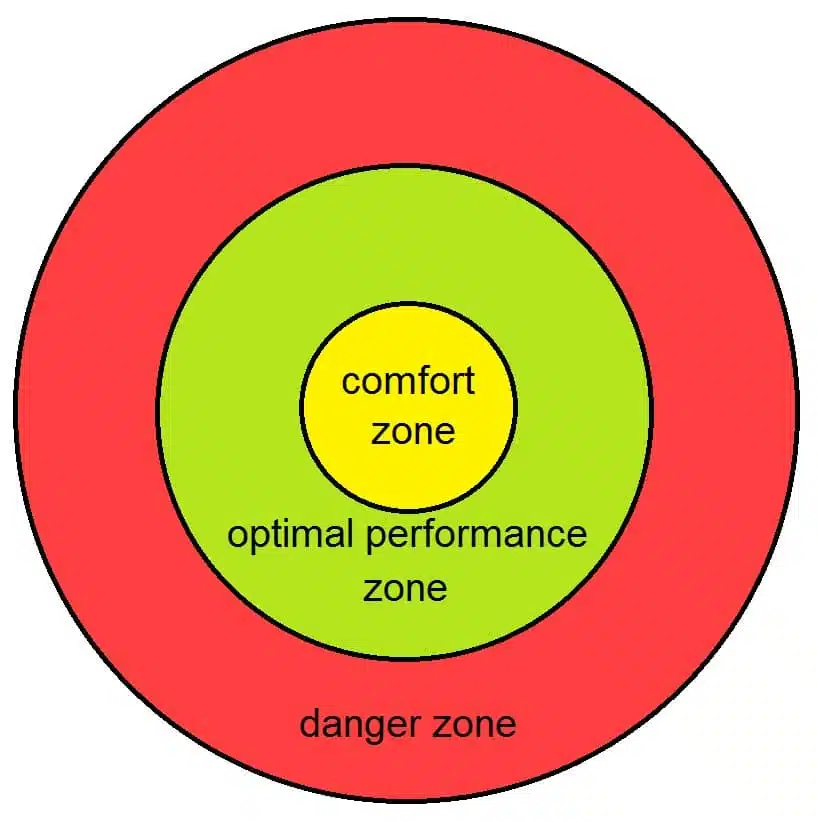
![The Wheel of Fortitude - The Comfort Zone Revisited 2 The-Comfort-Zone-diagram[1]](https://cross-silo.com/wp-content/uploads/2020/08/The-Comfort-Zone-diagram1-1024x1024.jpg.webp)
